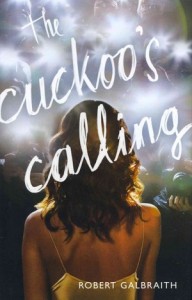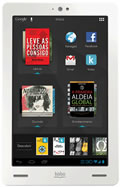 “JK Rowling Unmasked as Author of Acclaimed Detective Novel!” crowed the Daily Telegraph on July 22. “Writing under the pseudonym Robert Galbraith, the Harry Potter creator wrote a 450-page crime novel called The Cuckoo’s Calling. The book is billed as a “classic crime novel”, written in the style of PD James and Ruth Rendell…”
“JK Rowling Unmasked as Author of Acclaimed Detective Novel!” crowed the Daily Telegraph on July 22. “Writing under the pseudonym Robert Galbraith, the Harry Potter creator wrote a 450-page crime novel called The Cuckoo’s Calling. The book is billed as a “classic crime novel”, written in the style of PD James and Ruth Rendell…”
So — instant hit, right?
The Cuckoo’s Calling by Robert Galbraith sold a total of around 1500 copies between its publication in April and its unmasking in July. In contrast, The Cuckoo’s Calling by Galbraith AKA JK Rowling skyrocketed to #1 on Amazon and has more than 1500 reviews so far.
Agent and Author Nathan Bransford remarked (as I quoted previously) that this shows even Rowling can write a good book that sinks with hardly a ripple. Book Designer Joel Friedlander further noted that the takeaway lesson is: PLATFORM! An author without media visibility is like a tree falling in a forest with no one to hear it.
Some of us are bemused by the 21st-century trope that a book sells because its author is well known — reversing the longtime assumption that an author becomes well-known because her/his books appeal, i.e., sell, to readers. Platform evangelists go further: A website isn’t enough; your author platform must include a blog, posted regularly (weekly? daily?) to promote yourself and thereby your books. Your blog must include a way to recruit subscribers: a sign-up widget, plus some incentive to join, such as a free book. Next step: market your blog!
Peter Brantley remarked some time ago that what’s changed about publishing in this new century is that the big decisions are no longer made by literary people — authors and editors — but by techies, at mega-companies such as Amazon and Google. Put it all together and you have a publishing industry which undercuts writers whose greatest strength is writing, and boosts those whose greatest strength is marketing.
What kind of literary landscape does this shift in slant produce? Is the word “literary” even applicable to today’s book world? One author I know regards his book as his business card, handed out more often than sold (and shelved or tossed more often than read) — an upscale credential for his real work as a consultant.
 A bright spot on the horizon from my POV is the fairly new, and burgeoning, alliance between Canadian online e-book/e-reader giant Kobo and the ABA (American Booksellers’ Association). A reader who creates an online account with Kobo by way of his or her favorite local bookstore’s website can then buy books from that store through Kobo. This program isn’t exactly the belated Good Fairy at Sleeping Beauty’s christening, but it may be a deus ex machina of sorts — life support for the long-time alliance among publishers, bookshops, readers, and writers.
A bright spot on the horizon from my POV is the fairly new, and burgeoning, alliance between Canadian online e-book/e-reader giant Kobo and the ABA (American Booksellers’ Association). A reader who creates an online account with Kobo by way of his or her favorite local bookstore’s website can then buy books from that store through Kobo. This program isn’t exactly the belated Good Fairy at Sleeping Beauty’s christening, but it may be a deus ex machina of sorts — life support for the long-time alliance among publishers, bookshops, readers, and writers.
I’m currently investigating how small independent publishers may be able to create a synergistic niche in this emerging ecosystem. Have you discovered one yet? Let me know!
